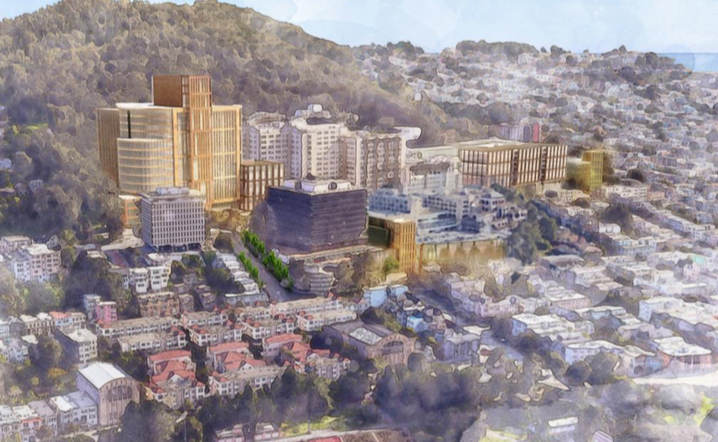Two things became perfectly clear yesterday at a hearing on the UCSF expansion plan in Parnassus Heights:
The amount of housing the university plans to build is woefully inadequate – and the city’s Memorandum of Understanding with the school is completely unenforceable.

In fact, there’s some indication that both the Planning Department and the UCSF chancellor wrote the agreement specifically to avoid legal accountability.
The hearing before the board’s Land Use and Transportation Committee lasted more than six hours, as more than 100 people spoke, mostly in opposition to the plan.
Under questioning from Sups. Dean Preston and Aaron Peskin, Deputy City Attorney Charles Sullivan acknowledged that the document was a “good faith” agreement – “not a document that would be enforceable in a court of law.”
That’s kind of a problem, since UCSF has directly violated the previous MOU with the city, which set a strict cap on the amount of space the school would construct and use at its Parnassus campus.
Jeff Buckley, a senior housing advisor to Mayor London Breed, told the committee that the discussions were consistent with past MOUs – which obviously aren’t enforceable, since UCSF just broke one of them.
The issue, he said, “is not enforceability but leverage,” since the city would have to issue encroachment permits for most of the new construction.
Help us save local journalism!
Every tax-deductible donation helps us grow to cover the issues that mean the most to our community. Become a 48 Hills Hero and support the only daily progressive news source in the Bay Area.
But as a state agency, UCSF is not under the jurisdiction of the city and can build anything it wants.
The housing that UCSF would build to accommodate a new workforce of 4,466 people and 504 new students is not even close to what would be needed, figures from the Mayor’s Office show.
Under the MOU, UCSF would provide 1,263 total housing units. That would meet only 28.2 percent of the housing demand that the project would create. If you add the students, who will also need housing, the number drops to about 25 percent.
Of those 1,008 units would be “affordable,” that is, below market-rate – but half of those could go to people who earn up to 120 percent of AMI and the other half to people who earn up to 90 percent of AMI.
That’s fine for the medical personnel, who are generally paid well, but 3,853 of the jobs would go to “non-academic” workers, who would be paid much less.
The analysis shows that 1,265 of those workers would not make 90 percent of AMI.
And only half the housing would be built in the next decade, the rest potentially not until 2050.
In other words, the jobs-housing balance is completely unbalanced.
“That’s a problem, and one that, unless mitigated, will be shouldered disproportionately by the surrounding neighborhood,” Sup Dean Preston said at the hearing. “The housing contribution, expressly intended to accommodate the UCSF workforce, is set at AMI levels that will leave much of the workforce out.”
Preston asked the Board of Regents to delay consideration of the plan, which was set to come before the panel in January, until the March meeting to allow the public to better understand what’s going on.
Land Use Chair Myrna Melgar noted that, while the MOU has some positive elements and she supports the project, “it’s important that this plan is beneficial to the city and this language is not fully cooked.”
But Chancellor Sam Hawgood said that he would not agree to delay the regents’ approval. He also said that the regents would not accept any binding contract.
The board voted 10-1 to support Preston’s resolution calling for a delay.



